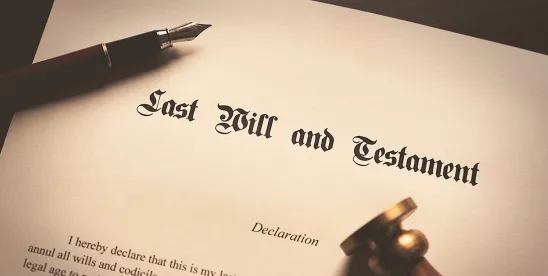In Pennsylvania, contesting a will is a serious legal action that should not be taken lightly. It can be emotionally challenging, especially if you believe that the will does not reflect the true intentions of the deceased. However, the law in Pennsylvania provides specific grounds and procedures for individuals who wish to contest a will. This blog post will explore the grounds for of contesting a will.
Grounds for Contesting a Will in Pennsylvania
Under Pennsylvania law, there are several valid reasons to contest a will. Common grounds for contesting a will include:
Lack of Testamentary Capacity
A will may be contested if the individual who made the will (the testator) lacked the mental capacity to do so at the time it was executed. To have testamentary capacity, the testator must understand the nature of their estate, know who their heirs are, and comprehend the effect of the will. If the testator was suffering from dementia, mental illness, or was under the influence of medication that impaired their judgment, this could serve as a basis for contesting the will.
Undue Influence
A will may be contested on the grounds of undue influence if it is proven that the testator was coerced or manipulated by another person to create a will that does not reflect their true desires. In Pennsylvania, undue influence is difficult to prove and requires evidence that the person exerted such influence over the testator that the will would not have been made but for that influence.
Fraud or Forgery
If the will was procured through fraudulent means or if it is believed that the testator’s signature was forged, the will can be contested on the grounds of fraud or forgery. This might involve scenarios where the testator was deceived into signing the will or where the will was altered after it was signed.
Improper Execution
Under Pennsylvania law, a valid will must be executed in accordance with strict formalities. This includes the requirement that the will be signed by the testator in the presence of at least two witnesses who also sign the will. If these formalities are not followed, the will may be contested on the grounds of improper execution.
Revocation of the Will
A will can be contested if there is evidence that the testator revoked the will before their death. Revocation can occur through physical destruction (tearing, burning, etc.), a written revocation, or by creating a new will that explicitly revokes the previous one. If there is doubt as to whether the will was revoked, it can be contested.
Contact a Pennsylvania Litigation Attorney to Contest a Will
Contesting a will in Pennsylvania can be a complex and emotionally taxing process. Whether you believe a will is invalid due to lack of capacity, undue influence, fraud, or any other reason, it is crucial to have a clear understanding of the legal grounds and the steps involved. If you are considering contesting a will, it is highly advisable to consult with an experienced probate litigation attorney who can guide you through the process, help build your case, and ensure your rights are protected



 />i
/>i

